ENGLISH
"Remove everything that has no relevance to the story. If you say in the first chapter that there is a rifle hanging on the wall, in the second or third chapter it absolutely must go off. If it's not going to be fired, it shouldn't be hanging there."
-- Anton Chekhov (From S. Shchukin, Memoirs. 1911.)
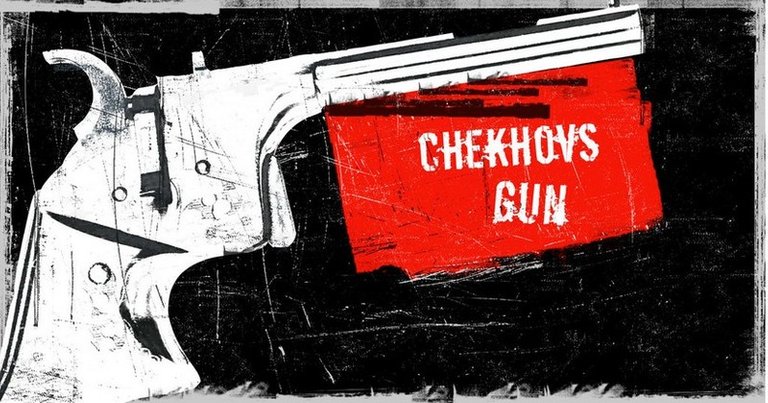
Chekhov's gun is a writing concept which states that if an author stops to describe an object, detail or location, it must be relevant to some future point in the story. This, of course, does not mean that every detail must be of absolute importance: It is possible set a mood without all the details used being elements to be used later in the plot.
The main lesson to be taken from Chekhov's gun is that the story must be cohesive: Each of the components that make up the story must contribute to the whole in a way that makes sense, rather than being loose dots put here and there to "spice things up."
An example of this is the following:
In one scene one of the characters is shown to have strange dreams. Unless these dreams affect in one way or another the decisions the character will make in the future, or serve as a basis for the character to change in one way or another, it is not a good idea to focus on describing these dreams.

So... Is Chekhov's Gun synonymous with foreshadowing?
It makes sense to look at it this way but.... Not really.
If someone fires a gun that came out of nowhere, that wouldn't really make sense; but the fact that a gun was shown means that the reader is aware of its existence: Chekhov's gun. If the gun doesn't go off, it's simply Chekhov's table decoration.
Chekhov's gun consists then in not showing "mirages" to the spectator by presenting elements whose function is not clear and is never explained throughout the story. That is, when you are presenting something to the reader, you are promising them that they are seeing that something for a reason.
Meanwhile, foreshadowing consists of subtly dropping hints throughout the story, which will finally make sense during the climax; which will give additional value to going through the story again watching out for these small details that seemed irrelevant.
I think the best way to understand it is through a few examples, feel free to add your own in the comments:
Example 1: Invader Zim: Enter the Florpus!
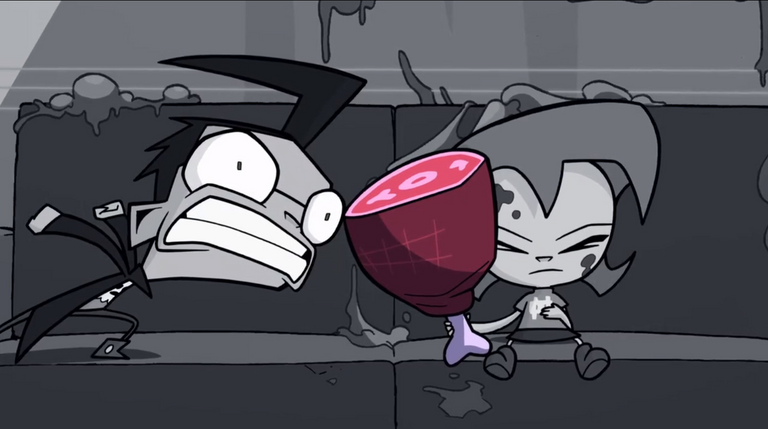
This one is a bit straightforward: The director pauses the scene to draw our attention to the Chekhov's Ham.
In this scene, Gaz (Dib's sister) chokes her brother with ham to make her father's doppelganger believe that they need quality father-son time so they can get out of the house they've been trapped in for two days. After this we don't know what happened to the ham. Let's fast forward a bit, almost to the end.
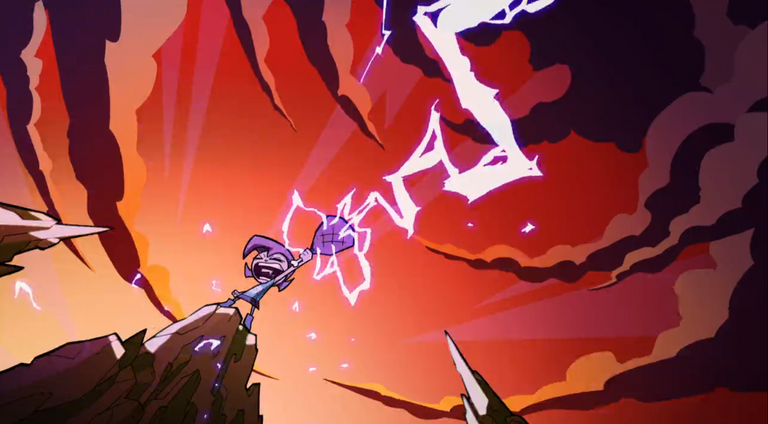
While fighting the evil alien Zim in the final showdown before the Earth gets destroyed by the Florpus; this ham is recalled and used as the final weapon to finally take down the evil gremlin and restore everything to normal. They directed our attention to the ham at the beginning, and it was used later as a relevant plot element.
Example 2: Ready Player One
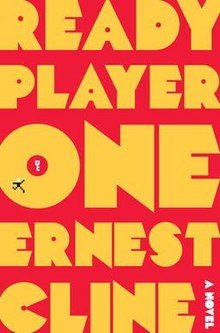
The protagonist, Wade Watts, aka Parzival, completes a perfect game of Pac-Man, whereupon he manages to pull out a coin that was stuck inside the machine. He picks it up, keeps it in his pocket and not much else happens concerning this coin.
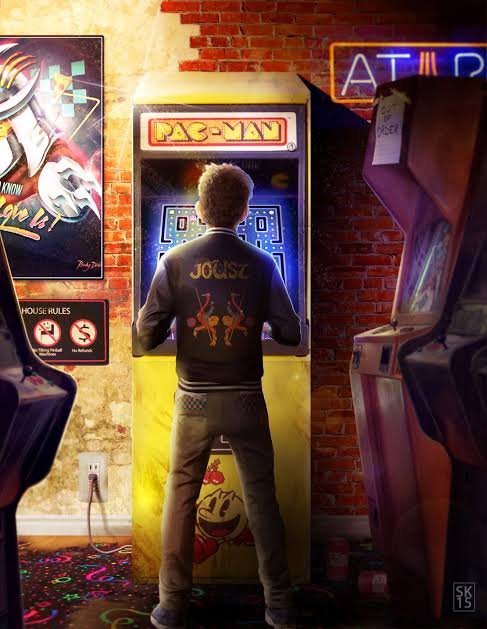
Parzival enters the castle in the middle of a great battle:
"As the three of us stepped forward, preparing to enter the gate, I heard a shuddering roar. It sounded as if the whole universe was splitting in two. And then we all died."
Except he doesn't, because, as it turns out, that Chekhov's Coin was actually an extra life.
ESPAÑOL
"Elimina todo lo que no tenga relevancia para la historia. Si en el primer capítulo dices que hay un rifle colgado en la pared, en el segundo o tercer capítulo debe dispararse absolutamente. Si no se va a disparar, no debería estar colgado ahí".
-- Anton Chekhov (De S. Shchukin, Memorias. 1911.)
El Arma de Chekhov es un concepto de escritura que consiste en que si un autor se detiene a describir un objeto, detalle o localización, este debe ser relevante en algún momento futuro de la historia. Esto por supuesto no quiere decir que todo detalle debe tener importancia absoluta: Se puede definir una atmósfera sin que todos los detalles usados para esto sean elementos a emplear más adelante en la trama.
La principal lección que se debe tomar del Arma de Chekhov es que la historia debe ser cohesiva: Cada uno de los componentes que la conforman debe contribuir al todo de una manera que tenga sentido, en lugar de ser puntos sueltos puestos aquí y allá para "darle sabor a las cosas"
Un ejemplo de esto es el siguiente:
En una escena se muestra que uno de los personajes tiene sueños extraños. A menos que estos sueños afecten de una manera u otra las decisiones que el personaje tomará en el futuro, o sirvan como una base para que el personaje cambie de una manera u otra, no es buena idea enfocarse en describir estos sueños.

Así que... ¿Es el Arma de Chekhov sinónimo de Foreshadowing ?
Tiene sentido verlo así pero.... La verdad es que no.
Si alguien dispara una pistola que sale de la nada, no tendría mucho sentido; pero el hecho de que se muestre una pistola significa que el lector es consciente de su existencia: Es el Arma de Chekhov. Si el arma no se dispara, es simplemente la decoración de mesa de Chekhov.
El Arma de Chekhov consiste pues en no mostrar "espejismos" al espectador presentando elementos cuya función no está clara y nunca se explica a lo largo del relato. Es decir, cuando se presenta algo al espectador, se le promete que está viendo ese algo por una razón.
Por su parte, el foreshadowing consiste en dejar caer sutilmente pistas a lo largo de la historia, que finalmente cobrarán sentido durante el clímax; lo que dará un valor adicional a volver a repasar la historia atento a esos pequeños detalles que parecían irrelevantes.
Creo que la mejor manera de entenderlo es a través de algunos ejemplos, siéntete libre de añadir los tuyos en los comentarios:
Ejemplo 1: Invasor Zim y el poder del Florpus

Este es un poco directo: El director hace una pausa en la escena para llamar nuestra atención sobre el Jamón de Chekhov.
En esta escena, Gaz (la hermana de Dib) asfixia a su hermano con jamón para hacer creer al doble de su padre que necesitan un tiempo de calidad padre-hijo para poder salir de la casa en la que llevan dos días atrapados. Después de esto no sabemos qué pasó con el jamón. Avancemos un poco, casi hasta el final.

Mientras luchan contra el malvado alienígena Zim en el enfrentamiento final antes de que la Tierra sea destruida por el Florpus, este jamón es recuperado y utilizado como arma final para acabar con el malvado gremlin y devolver todo a la normalidad. El jamón fue objeto de nuestra atención al principio, y se utilizó posteriormente como elemento relevante de la trama.
Ejemplo 2: Ready Player One

El protagonista, Wade Watts, alias Parzival, completa una partida perfecta de Pac-Man, con lo que consigue sacar una moneda que estaba atascada dentro de la máquina. La recoge, la guarda en su bolsillo y no ocurre mucho más en relación con esta moneda.

Parzival entra en el castillo en medio de una gran batalla:
"Cuando los tres nos adelantamos, preparándonos para entrar por la puerta, oí un rugido estremecedor. Sonó como si todo el universo se partiera en dos. Y entonces todos morimos".
Excepto que no lo hace, porque, en realidad, esa Moneda de Chekhov era una vida extra.
Esto me recuerda a la pulsera que lleva Taki en Your Name, al principio de la historia vemos cómo Mitsuha entrelaza hilos que son muy parecidos a dicha pulsera que él usa. Siendo que después se nos revela casi terminando la película que fue ella quién le entregó ese objeto tres años antes de que se conocieran de verdad. El arma de Chéjov me gusta bastante, creo que ayuda a desarrollar una historia de mejor forma.
Vaya, no había caído en ese detalle :0
Hi mood1e,
Visit curiehive.com or join the Curie Discord community to learn more.
Thank you for the upvote!
Es interesante saber que todos los elementos en una obra literaria tienen una función. Como lectores solemos estar tan absortos en la historia que no reparamos completamente en si algunos objetos o situaciones tendrá alguna razón de ser. La verdad ignoraba este recurso narrativo, por lo que a partir de ahora lo tendré en cuenta a la hora de leer un libro o ver una película.
Gracias por compartir por acá.
Gracias por tu comentario 😄 Es un recurso bastante interesante ya que si lo tomamos en cuenta como lectores podemos anticipar de cierta manera qué puede pasar más adelante, pero conserva el suspenso de que no sabemos cómo exactamente puede sorprendernos un autor
Upvoted 👌 (Mana: 36/48) Liquid rewards.
Chekhov's gun is quite a methodical way to lose creativity and produce formulaic writings.